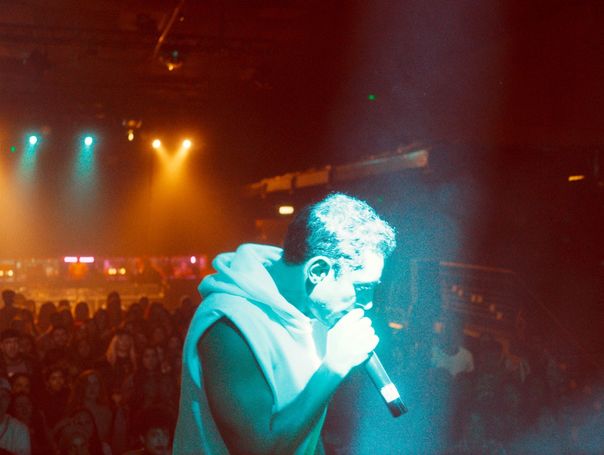Cultural trauma through the generations
An affecting if somewhat safe family drama, Mogul Mowgli prods into the deeper, darker realms of a traditional father-son relationship
By Debbie Zhou

© Mughal Mowgli Ltd, BBC
The effects of cultural divide always come with a story, and often with many sides to it. In Mogul Mowgli, which world premiered at the 70th Berlinale in the Panorama sidebar, actor-rapper Riz Ahmed (Nightcrawler and one half of the hip-hop group ‘Swet Shop Boys’) stars in and co-writes an affecting albeit safe family drama that prods into the deeper, darker realms of a traditional father-son relationship. Riddled with cultural misunderstandings and the inter-generational traumas that threaten to widen the rifts between them, the connection between body and mind rip open like a wound.
“They wanna kill us all...this is for the mosque and the mosh pit,” raps Zed – a Pakistani-British musician, played by a dazzling Ahmed, who spits out searing words with propulsive rhythms. He’s on his way to reach the top of his music career; and the crowd cheers up at him, feeling the words move them in their soul. Zed’s integrated into the Western world with his hard-hitting notes as a first-generation immigrant (his real name is Zaheer) – the lyrics of injustice, sadness and anger cutting through the air. But that same world also led him astray from his own culture and family who helped him form those experiences: the fractures between his mother, who leaves his gifts unopened after six months, and his father (Alyy Khan), who quietly disapproves of his career choice. The diagnosis of Zed’s illness - an autoimmune condition that leaves his body and muscles physically impaired - throws up everything he thinks he needs and wants into question, leaving him to relinquish the self-absorption that has clouded his family ties with his own ambition.
Director and co-writer Bassam Tariq, who has primarily worked in the sphere of documentary, yields his feature directorial debut with a gentle hand -- handling the tension of Zed’s obsessive desire to create musical legacy, and his father’s more traditional religious rituals and expectations, with an eye for detail. Anika Summerson’s camera focuses on the small particulars of Zed’s dwindling health; in constant close-up, we see his crooked feet patter the ground, legs and arms too weak to push himself off the toilet seat, earbuds lying unclaimed on the hospital floor.
As Zed chooses to take part in an experimental therapy that may leave him infertile, the film fluctuates tonally between gritty territory – the consequences of bearing familial disappointment – and a surrealist nightmare – which feature fragments of curly-haired Pakistani mythological figure ‘Toba Tek Singh’, and rap battles that chew over the cultural appropriation of that musical genre. Paul Davies’ immersive sound design, which embeds the clacketing, screechy noise of the trains Zed’s father found refuge in while fleeing from the Partition of India, blurs childhood memories between father and son to an emotional degree.
It’s obvious that the script sketches out Zed’s journey from diagnosis-to-recovery as a metaphorical subtext for his own reconciliation with his father’s past. And though it comes from a place of personal meaning, it also lends the film an on-the-nose approach. This straightforward physical healing doesn’t automatically flesh out a more needed complex reconciliation of Zed’s cultural history, and in fact renders its optimistic ending all the more passive and merely illusive. But where the writing lacks in nuance, Ahmed delivers the show-stopping moments: his raps, crackling with bountiful energy, are the heart of the movie.

